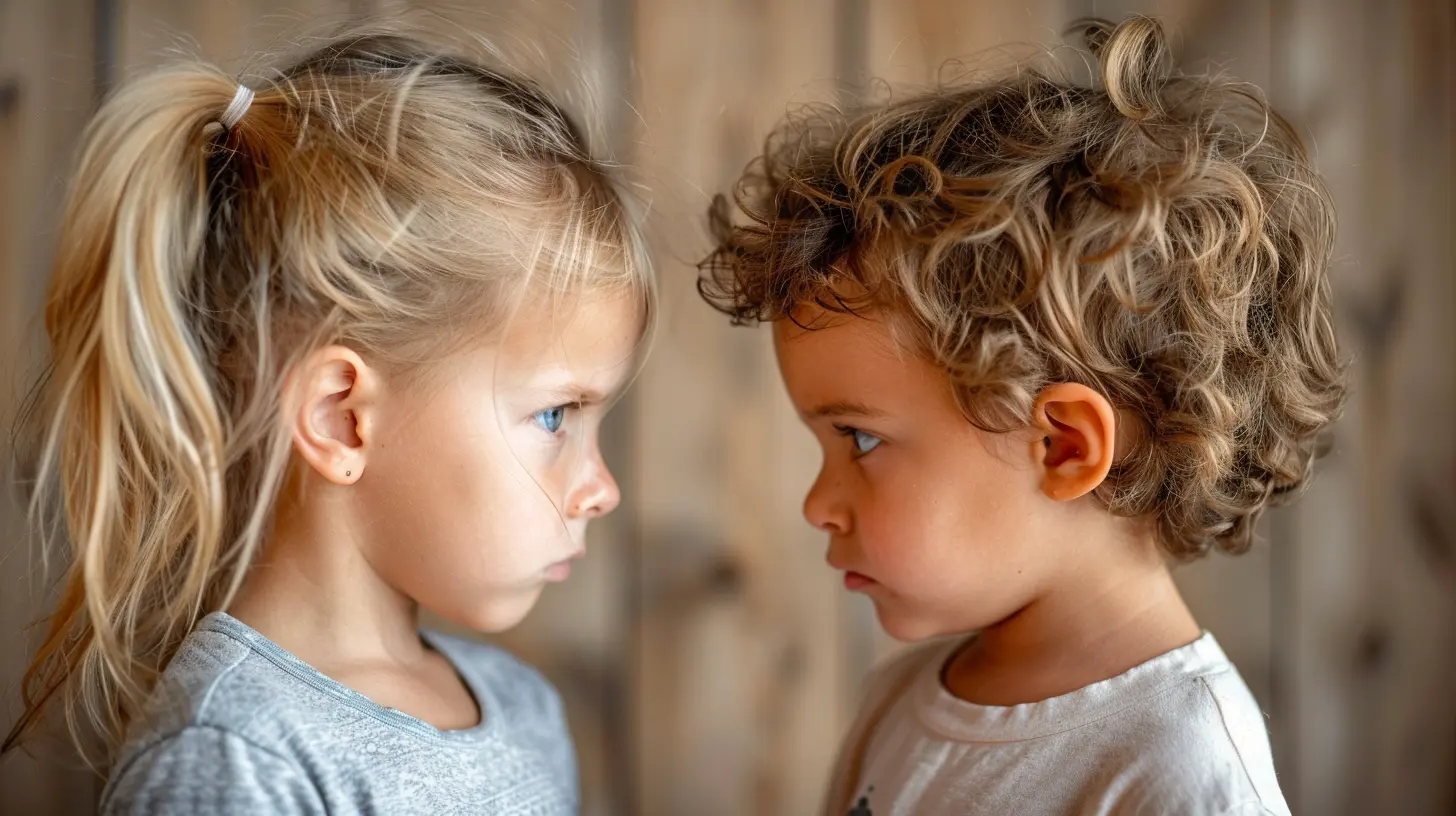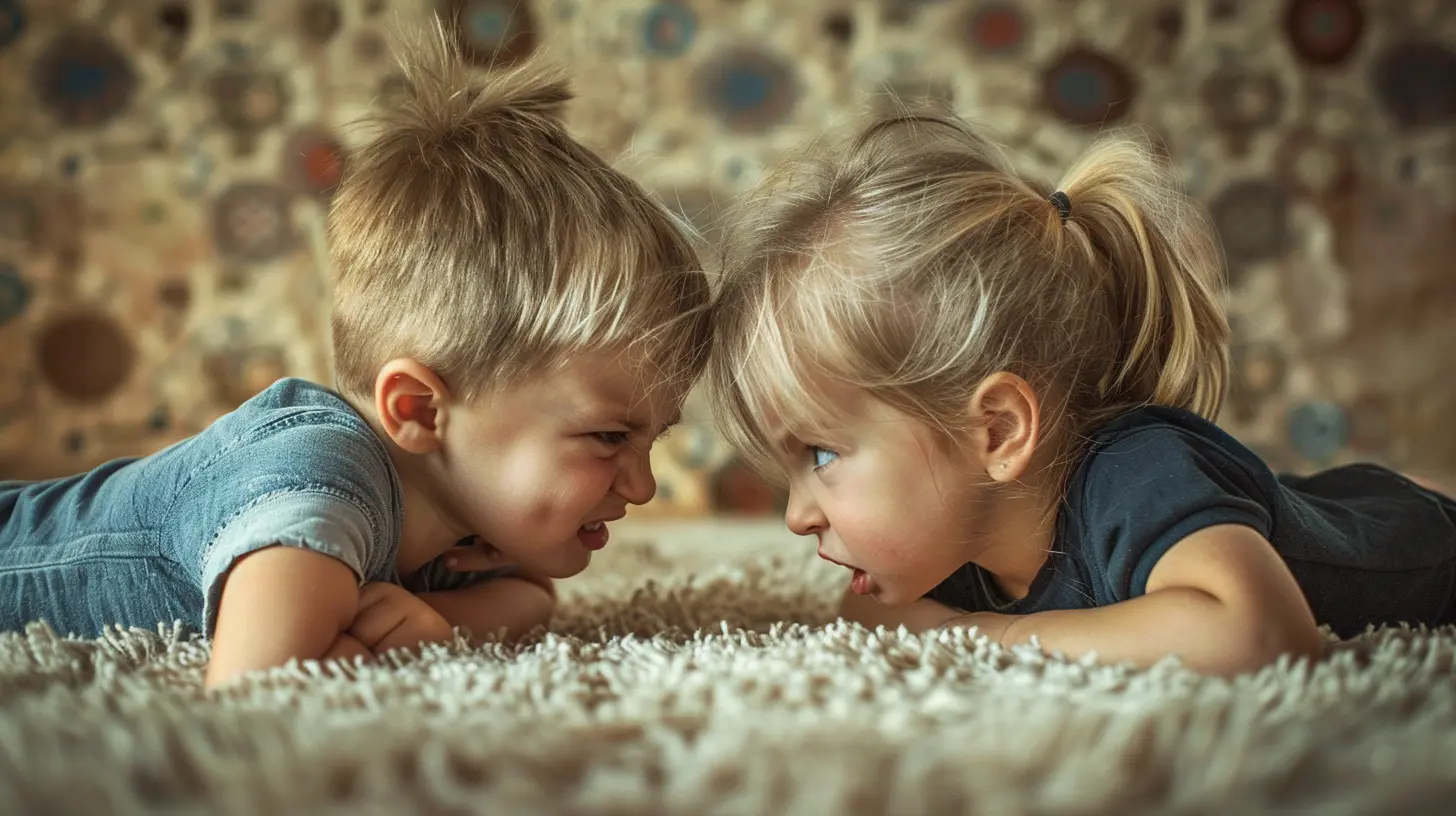How Family Dynamics Influence Sibling Rivalry
16 October 2025
Sibling rivalry – if you have more than one child, you've probably seen it firsthand. One moment they're giggling over a joke only they understand, and the next, they're arguing over who gets the last cookie or who had the toy first. Sound familiar?
But here’s the thing: those squabbles aren’t just about cookies or toys. There’s usually more going on beneath the surface. A lot of it comes down to what’s happening within the family itself — in other words, the family dynamics. That’s the secret sauce that can either simmer the tension or stir up the drama.
Let’s talk about how those behind-the-scenes family relationships and roles influence sibling rivalry, and more importantly, what we can do about it.
What Exactly Is Sibling Rivalry?
First off, let’s get on the same page. Sibling rivalry is that age-old battle between brothers and sisters — the jealousy, competition, and fighting that can happen as they grow up together. It’s completely normal, but that doesn’t mean it should be ignored.Think of it like a mini tug-of-war — each child pulling for attention, approval, or recognition. Who’s the fastest? The smartest? The funniest? Often, they’re trying to find their place in the family. And believe it or not, how we as parents interact with them plays a huge role.
Why Family Dynamics Matter So Much
Imagine your family as a little ecosystem. When everything is balanced — love, attention, discipline — things usually go pretty smoothly. But when there’s a shift in how parents respond to each child or how family roles are assigned, that ecosystem can get shaky.Family dynamics refer to the patterns of interactions between family members. These include how we communicate, show affection, resolve conflict, and set boundaries. They also include things like birth order, parenting style, and even the presence of stress in the home.
When something's off in this dynamic, it can fuel sibling rivalry like pouring gasoline on a fire.
The Birth Order Effect
Ever heard people say, “She’s such a typical middle child,” or “He’s definitely the baby of the family”? There's a reason those stereotypes exist — birth order often shapes a child’s role and personality within the family.- Firstborns: They tend to be responsible, high-achieving, and perfectionists. They’re often mom and dad’s "helper" and might feel extra pressure to set a good example.
- Middle children: Often feel overlooked, squeezed between the over-achieving older sibling and the spoiled youngest. This can make them more competitive or attention-seeking.
- Youngest siblings: Frequently get labeled as the “baby,” and are either cuddled or underestimated. They might push boundaries more or use charm to get their way.
Birth order doesn’t cause rivalry, but it certainly sets the stage for how siblings see themselves — and each other.
The Role of Parenting Style
Let’s be real — our parenting choices, even subtle ones, make a big impact.- Authoritative parenting, where parents set firm rules but also show warmth and understanding, tends to create more harmony among siblings.
- Authoritarian parenting, which is stricter and less nurturing, can breed resentment and competition.
- Permissive parenting, where parents are overly lenient, might lead to children pushing boundaries and fighting for dominance or attention.
Kids are like little radar dishes — they pick up on these cues and behave accordingly. If one child feels another is favored or gets away with more, game on.
The “Favorite Child” Syndrome
Let’s address the elephant in the room. Most parents swear they love all their children equally. And we do, right?But here’s the catch — kids don’t always perceive it that way.
Favoritism, even when unintentional, can be a mega driver of sibling rivalry. Maybe one child gets praised more for academic success, while another rarely gets that same spotlight. Or maybe one is easier to manage, so you end up spending more time with them.
When kids feel like they’re not measuring up — or worse, like someone else is constantly getting more love or attention — resentment builds. That resentment often spills over into sibling relationships.
Communication Styles Within the Family
Families that communicate openly and respectfully generally foster better sibling relationships. On the flip side, families where emotions are bottled up or where yelling is the norm can create a competitive, high-stress environment.Here’s why: Children mirror what they see. If conflicts between parents are solved through blame or sarcasm, siblings may adopt those same habits. If love and validation are only expressed through performance or obedience, kids might start competing emotionally.
Fostering healthy lines of communication is like laying down a peace treaty — it gives kids the tools to express, not explode.
Stress Makes Everything Worse
Let’s not forget the role of external stressors, like financial problems, divorce, moving to a new city, or even the arrival of a new baby. When parents are stressed, distracted, or emotionally unavailable, kids notice — and they react.Sometimes they act out. Other times they look for reassurance. That search for security and stability often manifests as increased rivalry, where each child is vying for some form of control or consistency in a world that suddenly feels unpredictable.
It’s not about blaming ourselves — we’re human. But being mindful of how our own stress affects our parenting can go a long way in calming the stormy seas between siblings.
The Influence of Family Roles and Expectations
Some families fall into patterns — without even realizing it. One child might be labeled the smart one, another the troublemaker, and yet another the “peacemaker.” These labels, even when said in jest, stick like superglue.And what do labels do? They box kids in. They push siblings to compete or rebel against the roles assigned to them. A “troublemaker” might act out more, seeking attention through bad behavior. The “smart one” might become overly perfectionistic or bossy to maintain their title.
Parenting tip here? Try not to pigeonhole your kids. Let them explore, fail, and evolve without being forced into a box.
Watching How Conflict Is Handled At Home
Think about how you and your partner (or co-parent) handle conflict. Do you yell? Do you shut down? Do you negotiate and move on? Your kids are watching — closely.If they see respectful conflict resolution, they’re more likely to use those tools with each other. But if they see passive-aggressive behavior or silent treatment strategies, guess what they’ll use?
Modeling doesn’t guarantee peace, but it builds the foundation. Show them what healthy resolution looks like, and little by little, they’ll internalize it.
How to Diffuse Sibling Rivalry with Positive Family Dynamics
Okay, so now that we know how family dynamics influence sibling rivalry, what can we do to make things a little less chaotic?1. Balance the Attention Scale
Spend quality one-on-one time with each child. It doesn’t have to be long — even 15 minutes a day of undivided attention tells your child, “You matter.” That emotional security can reduce the need to compete.2. Be Mindful of Comparisons
Avoid saying things like “Why can’t you be more like your sister?” Even when meant to motivate, comparisons usually backfire. Focus instead on each child’s strengths and individuality.3. Set Clear, Fair Rules
House rules should apply to everyone (adjusted for age). Consistency in expectations and consequences builds trust and fairness — two things that help minimize resentment.4. Praise the Behavior You Want Repeated
Catch your kids being kind to each other. Compliment teamwork, empathy, or compromise. When you spotlight positive interaction, you encourage more of it.5. Teach Conflict Resolution Skills
Guide your kids in problem-solving together. Rather than jumping in to fix things, ask open questions like, “How do you think we can solve this?” Teach them to use “I” statements and to listen before reacting.6. Be Honest About Emotions
Normalize feelings — even the "negative" ones. Siblings sometimes feel jealous, annoyed, or left out. That’s okay. Help them name those feelings and manage them without attacking each other.When Sibling Rivalry Crosses the Line
Sometimes, sibling rivalry isn't just normal bickering. If you notice signs of bullying, prolonged hostility, or emotional abuse between siblings, it's time to intervene more seriously. In these cases, it may help to talk to a pediatrician or family therapist for guidance.Don’t wait until the fights escalate. Address patterns early, while they’re still gentle waves rather than full-blown tsunamis.
Final Thoughts
Sibling rivalry isn’t something we can completely eliminate — and honestly, we shouldn’t. Some level of conflict helps kids build social skills, resilience, and empathy.But how we shape the family environment — how we parent, communicate, set expectations, and model behavior — that’s the game-changer. Family dynamics don’t just influence sibling rivalry; they have the power to either ignite or calm the flames.
So, the next time your kids start squabbling over screen time or who gets the window seat in the car, take a breath. Look at the big picture. Ask yourself, “What’s really going on here?”
Chances are, it’s about something deeper — something a little love, consistency, and awareness can help solve.
all images in this post were generated using AI tools
Category:
Sibling JealousyAuthor:

Austin Wilcox
Discussion
rate this article
1 comments
Lisette McKittrick
Understanding family dynamics is key to nurturing healthy sibling relationships. Embrace open communication and empathy, fostering a supportive environment where siblings can thrive together. Let love and teamwork shine amid rivalry—it's a beautiful journey of growth!
October 22, 2025 at 3:56 AM

Austin Wilcox
Thank you for highlighting the importance of communication and empathy in sibling relationships! Emphasizing love and teamwork truly fosters a supportive environment for growth amidst rivalry.


